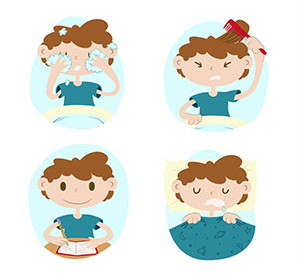Children are actually more inclined to fall sick than adults, the reason behind it is that children come in close contact with other children in schools and germs can be easily transmitted especially on the playground. Unfortunately, most children are not as conscious about their personal hygiene as they should be, which indirectly increases the risk of illness among other students.
There’s a lot more to hygiene than simply washing your hands. Schools should provide an atmosphere wherein good hygiene can be taught and good habits such as hand washing can be imbibed at an early age. Habits taught at a young age stay throughout life. Make these habits fun for children so that it becomes easy for them to implement them and learn from them.
Make Hygiene Fun And Exciting
![]()
Children are likely to adopt hygienic habits only when they enjoy carrying them out. It can be taught through co-curricular activities, competitions conducted in the schools, rewards, incentives, etc. The importance of hygiene can be conveyed to students in a fun manner.
TIP 1: Hand-Washing Is Crucial
Hand washing is an integral aspect of good hygiene. To get rid of germs after playing on the grounds or when you come in close contact with dusty streets, stray animals, an ill student, it is important to teach students the importance of washing their hands thoroughly and properly scrubbing them with antiseptic cleansers, especially after they are done using the washroom.
TIP 2: Grooming the Fingernails
Fingernails are a breeding ground for all sorts of bacteria. The germs that are found under a child’s nails can easily transfer to their mouth, eyes, and nose. Teachers should ensure that the students’ fingernails are clipped every week and are clean.
TIP 3: Oral Hygiene
Teach the students to brush and floss properly, it is a skill that can only be improved through practice. This kind of oral hygiene should be instilled in students at an early age. Brushing and flossing should be done at least twice.
TIP 4: A Handkerchief Is Your Best Friend
A handkerchief should be a student’s best friend. From day 1, children should be taught to cover their mouth with the help of a handkerchief or a tissue, especially while coughing or sneezing in the classroom or at public places. Teach them to wipe the sweat on their face with a clean handkerchief and not on their uniforms.
TIP 5: Keep The Toys Germ-Free
Every child has one favourite stuffed toy or blanket that they carry around in the house and it may carry germs if you don’t wash it frequently. Similarly, the toys that students use at schools need to be clean and sanitary to avoid the spread of germs. Make sure all the toys are washed regularly.
TIP 6: Cleaning The Classroom
All schools should regularly clean the classrooms along with the furniture to ensure a bug-free, germ free environment to learn and teach. All the playrooms, auditoriums, and classrooms must be properly vacuumed and mopped each and every day.
TIP 7: Foot Hygiene Is Vital
Sweaty feet can cause fungal infections if not washed properly. Children should wear cotton-lined socks to schools instead of synthetic fiber ones with the leather and canvas shoes so that they can breathe and there is less collection of bacteria.
TIP 8: Dealing With Illness
Children should only be sent to school if they are healthy and strong enough to participate in the activities and benefit from them. This will also reduce the chances of other students getting ill and skipping school
TIP 9: Stop Bad Habits
Remind students of the importance of practising good hygiene every day. Explain to them that, although germs may not be visible to the eyes, they are still found on their hands, in air particles, and can make them very sick.
Nalanda International School is one of the best ICSE school in Baroda and we are constantly trying to improve our work and help our students achieve great success in everything they do.

